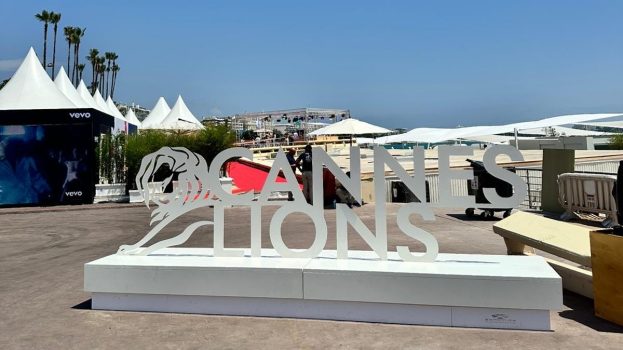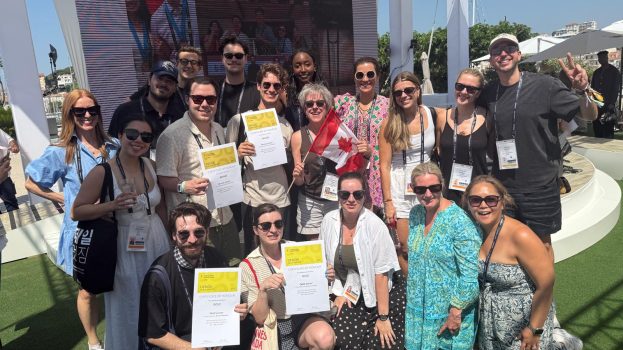
The AToMiC Awards brings together the best of advertising, technology, media creativity and content – celebrating the bold ideas that meet cultural moments and disrupt the status quo.
This year, the Gold award-winning brands did so by staking a claim in their perceived weaknesses in some of the defining crises of our time and even in their own brand identities. Even the Grand Prix-winning campaigns staked their claim in making the world a more inclusive place. Read on to learn more about the top winning work at this year’s AToMiC Awards.
Inclusivity comes first
As the industry continues to acknowledge diverse perspectives and experiences, embracing inclusivity has become a focal point for many brand campaigns. When done well, it’s a win for the brand, but more significantly, a win for those who have long found themselves on the margins.
In the case of AToMiC Grand Prix and double-Gold winner “Runner 321” by FCB, Adidas sought to break barriers for marginalized communities and bring to life its tagline, “Impossible is Nothing.”

As part of Adidas’ goal to partner with the world’s best, most diverse, athletes, it sponsored Chris Nikic, the first athlete with Down syndrome to complete an Ironman. As the first globally sponsored athlete with Down syndrome, Nikic showed what’s possible for neurodivergent athletes.
The campaign goal was to go beyond a single individual and create a movement that would increase the visibility of neurodivergent athletes within the world’s most accessible sport: running.
With so many sports greats known for their jersey numbers (Michael Jordan’s 23, Lionel Messi’s 10, Wayne Gretzky’s 99) Adidas created the first number to symbolize an entire community of neurodivergent athletes. It put out an ask to the world’s major marathons: reserve bib #321 for a neurodivergent athlete who qualifies. The number signifies the Trisomy 21 chromosome present in people with Down syndrome.
The campaign launched in the fall of 2022 with a video featuring Nikic, a social campaign encouraging major marathons to include a “Runner 321,” and a website that offered a “Runner 321” toolkit with race instructions and social posts. Activations took place at the New York City and Boston Marathons, with a takeover of the New York Adidas store on 5th Avenue, and also at cheering sections at mile 3.21. Once Nikic completed the Boston Marathon, he handed his bib to the next “Runner 321,” Kayleigh Williamson, for the 2023 race.
As a result of the program, six of the world’s major marathons (Boston, New York, Tokyo, London, Berlin and Chicago) reserved bib 321 for a neurodivergent athlete, despite four of them being sponsored by Adidas competitors like Nike, New Balance and Asics. More than 278 athletes, and counting, have signed up to be the next “Runner 321,” and more than 250 races have committed to adding a “Runner 321.”
While Adidas aimed to embrace inclusivity on the streets where marathons take place, #Elimin8Hate sought to make a difference on everyone’s screens. With Citizen Relations, it launched the “ReClaimYourName.dic” campaign, which took home the Public Service Grand Prix, as well as three Golds and four Silvers.

The goal was to eliminate the red line that appears under non-English names in computer software, in order to combat name discrimination. It also wanted to empower Asian Canadians to reclaim their original names, since many often adopt anglicized names.
The custom dictionary of Asian names contained more than 8,000 unique monikers from over a dozen countries, sourced from online name registries, national census data and Canadian cultural associations, and was offered as a free .dic file in Microsoft Word. Asian Canadians who visited the campaign website could download the file and add their own names to the dictionary to further expand the databank.
The launch video featured interviews with Asian Canadians sharing their experiences of name discrimination, followed by real-time reactions as they saw the red underline disappear from their name after downloading the dictionary.
The campaign was further amplified through wild postings and transit shelter ads, which were placed in high traffic locations throughout Toronto and Vancouver. Earned tactics included strategic media relations with Elimin8Hate spokespeople and personalized campaign t-shirts were sent to influential Asian Canadians.
NameReclaim.ca secured more than 10,000 website impressions and hundreds of direct dictionary downloads. And last year, Microsoft adopted the plugin in a global update.
Breaking through
KitKat and Rethink’s “Iftar Bar,” which claimed a Gold and Silver AToMiC, was a direct acknowledgment of the almost two million Muslims in Canada who participate in a holiday ritual – fasting during Ramadan, and then breaking that fast at the end of each day. KitKat has long associated itself with taking a break, and Iftar, which refers to the meal that happens daily at sundown during Ramadan, is the ultimate break.

While the classic KitKat bar consists of four fingers of chocolate, the “Iftar Bar” consists of 30 pieces, designed so that a single piece could be enjoyed each evening during Iftar. As each piece is broken off, a calendar was revealed underneath to show how far along people are in their fast. The bar was also divided into three parts, reflecting the three stages of Ramadan called Ashras.
No less attention was paid to the external packaging, which featured geometric patterns inspired by Islamic architecture. The lunar calendar also served as inspiration, with the packaging featuring iconography of the 30 phases of the moon.
To reach the Muslim community, the Nestlé brand partnered with creators to host giveaways on Instagram. With no paid media, the “Iftar Bar” went viral, with over two million impressions after only seven days. The bar was so popular that calls were made to make the “Iftar Bar” available worldwide.























